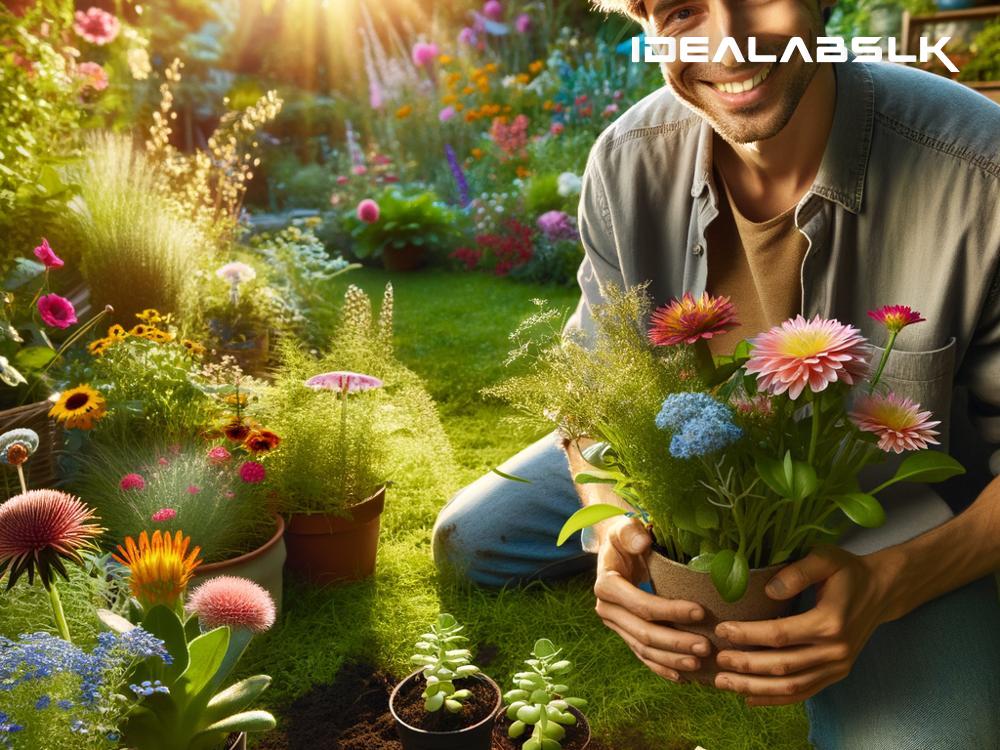How Gardening Enhances Emotional Well-being
Gardening isn't just about growing plants or beautifying your space; it's a deeply rewarding practice that can significantly enhance your emotional well-being. Have you ever noticed the calm that envelops you as you dig into the earth, plant seeds, or tend to your flowers? It's as if time stands still, and the worries of the world fade away. This experience isn't just anecdotal; science supports the idea that gardening can improve our mental health. Let’s dive deeper into how this simple yet profound activity can positively influence our emotional state.
A Connection to Nature
First and foremost, gardening is a direct connect with nature. In today’s world, where concrete often replaces green spaces, gardening offers a much-needed bridge back to the natural world. The act of touching soil, observing the lifecycle of plants, and being outdoors helps reduce stress, anxiety, and depression. It's a form of ecotherapy, which recognizes the therapeutic benefits of nature. The fresh air, the sunlight, and the sounds of nature all combine to bring a sense of peace and grounding.
Nurturing Growth
There’s something incredibly satisfying about planting a seed, nurturing it, and watching it grow. This process instills a sense of responsibility, achievement, and purpose. It reminds us of our own growth and how we, too, are nurtured by the care and love we receive. For individuals struggling with feelings of worthlessness or helplessness, gardening can be a powerful affirmation of their ability to contribute positively and make things grow. The patience and persistence needed in gardening can also transfer to other areas of life, enhancing resilience and the ability to cope with challenges.
Mindfulness and Meditation
Gardening is an exercise in mindfulness and meditation. It requires focus on the task at hand, whether it's weeding, pruning, or planting. This focus pulls us away from the incessant stream of thoughts and worries that often occupy our minds, offering a break from internal chatter. The repetitive nature of gardening tasks can be meditative, providing a space for the mind to rest and recharge. In these moments of quiet concentration, we can find clarity and a sense of inner peace.
Physical Exercise
While not often recognized for its physical benefits, gardening is an activity that requires movement and exertion. Digging, lifting, bending, and walking are all part of tending to a garden. This physical exercise releases endorphins, the body's natural mood lifters, reducing feelings of stress and leading to a more positive outlook. The benefits of sunlight, particularly the vitamin D it provides, also play a critical role in mood regulation.
Community and Connection
Gardening can also cultivate a sense of community and connection. Community gardens bring people together, fostering social interactions and friendships. Sharing gardening tips, seeds, or harvests can create bonds and a sense of belonging. For those who feel isolated, this community aspect of gardening can be incredibly therapeutic, providing social support and reducing feelings of loneliness.
A Sense of Achievement
Watching a garden thrive is a rewarding experience. It gives a tangible sense of achievement and accomplishment. Whether it's a bloom of flowers, the growth of a vegetable plant, or simply the transformation of a space, these successes boost self-esteem and confidence. Gardening teaches us patience and persistence, highlighting that effort and care can lead to beautiful results. This can be an important reminder in times of self-doubt or when facing personal challenges.
A Creative Outlet
Finally, gardening provides a creative outlet. Designing a garden, choosing plants, and arranging them in aesthetically pleasing ways allow for self-expression. This creative process can be incredibly fulfilling, offering a way to convey emotions, ingenuity, and individuality. The beauty created can be a source of joy and satisfaction, not just for the gardener but for all who witness the garden's evolution.
In conclusion, gardening is much more than a hobby; it’s a pathway to emotional well-being. By connecting us to nature, fostering growth, encouraging mindfulness, offering physical exercise, building community, providing a sense of achievement, and allowing for creative expression, gardening nurtures the mind as much as it does the earth. So, if you're looking for a way to enhance your emotional health, consider getting your hands dirty. The flowers you grow may just bloom within you, too.

